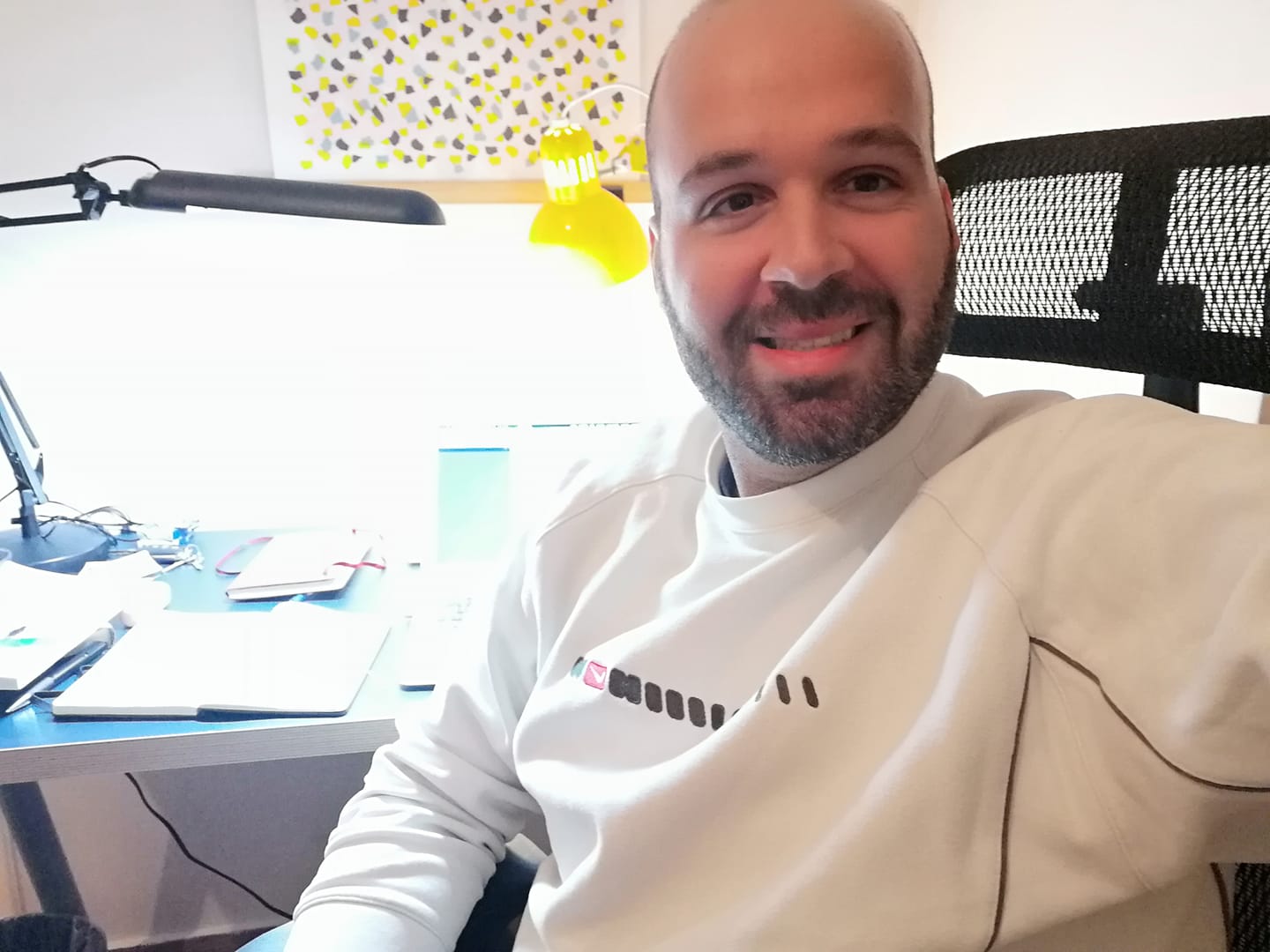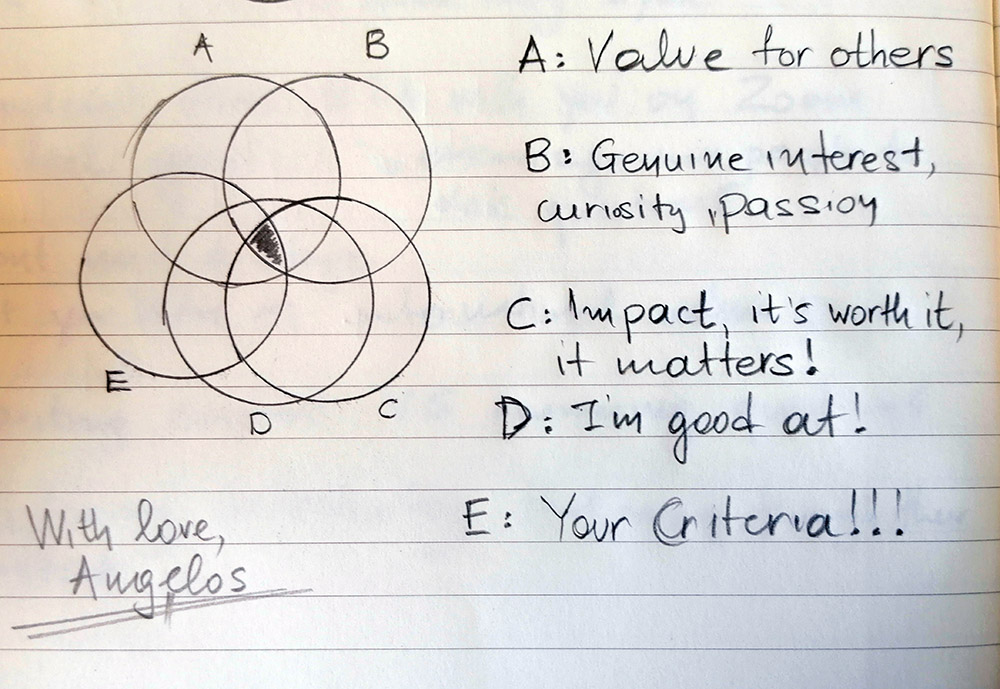Should we Focus on Strengths or Weaknesses?

Hey LiveDivers,
Have you read the title of this post? Well, I don’t know the answer. I want you to answer this question for me.
This is what Gary Vaynerchuk says: “You need to bet on your strengths and not give a fuck about what you suck at.” Watch here.
In another video he says the same.”Legacy is better than currency”. Watch here.
Now, Peter Ducker in a popular Harvard Business Review Classics (Managing Oneself) says the same: The reason people don’t succeed is that they don’t know their strengths. He suggests that we can only find out what our strengths are by looking at our past successes and failures (he calls that feedback analysis). Then, we should only invest in those strengths every single day. Also, we shouldn’t try to change everything at once. The key is in getting rid of the bad habits and continuously investing in our strong areas.
Here is an excellent summary of the book Managing Oneself written by the successful entrepreneur Tai Lopez.
On the flip side now I have to say the following:
- What if you have built your strength to such an extent that any marginal improvement towards your strength is not that important as opposed to an improvement in an area that you have always neglected.
- What if your strength is not as enjoyable anymore as it was before? OK, you most probably enjoy things that you’re good at but what if you don’t find something as sexy as before anymore?
- What if you have multiple passions and want to live a diversified life? What if you are a mathematician in your 30’s and a degree in history is now more interesting than a PhD in mathematics?
My dad used to be a teacher in primary school. He was a really good teacher. All the kids loved him. I’ve probably got some of his talent and done lots of teaching myself too. I’ve taught mathematics, languages, music and the feedback I’ve been getting all these years is really exceptional. However, I haven’t always enjoyed the process of teaching. Why? Because teaching sucks all your energy. 3-4 hours of real teaching can leave you dead. Does the fact that I can be a good teacher means I should become one? Not sure.
Two years ago I wrote a book about how we can become better learners and memorise better what we learn. I spent six months reading tons of research in cognitive psychology. There is no evidence that we should learn according to our preferred learning style (visual, acoustic, verbal, kinaesthetic) if we want to learn more effectively. On the contrary, there are studies that have shown the opposite. For example, visual learners learn better if they start reading or listening.
In another recent Harvard Business Review podcast, Tomas Chamorro-Premuzic, professor at University College London and Columbia University says there is no scientific evidence that focusing on your strengths guarantees success.
The problem he says is that we usually compare our own strengths between them instead of comparing our strengths against the same strengths in our peers. Well, I don’t fully agree with that either. Let’s say that more than half of the population is better at something we like and are best at. Giving that something up and looking at something we’re not good at doesn’t sound like a good strategy either.
Professor Chamorro-Premuzic says also that overdeveloping a strong area can become a liability rather than an asset. For example, a really ambitious person can become greedy or someone with good social skills can become a manipulator. But that’s again something you can’t control. Here we’re talking about people who want to get better and achieve the most of life like you and me. I don’t find convincing the reasoning here. Read for yourself. Tell me what you think.
My gut feeling as I’m writing this article is that we should do what feels right and not what we think is right. We live in a “KPI and ROI” society where productivity and optimisation are everything. We put our mind first and our heart second.
I think you shouldn’t follow anyone’s advice. Do what feels right to you. Do you want to explore something new? Do it. Do you find challenge in improving a skill that you thought you were not good at? Do it! You may find out that you’re good at it in the end.
Can you leave a comment below? I want to know your opinion.
-Angelos



7 Comments
Psychologists, usually work with and talk about, always related on statistical data. They overlook easily the individual soul. In other words, there cannot be a standard, but it will depend on the person’s unique makeup. In my opinion, we must use our strengths to deal with our weaknesses, discovering ourselves everyday, and finding tools to work on our weaknesses. Just a thought …
Gary Vee can go suck a fat one. He is basically repackaging Napoleon Hill/Dale Carnegie for 2017, albeit with hyper-emotional language. “Don’t think/Just do!/Be yourself/Don’t blame others” is at the core of one of his messages, and that’s cool. What isn’t so cool is his promulgation of “success”, “legacy”, and “hustle” (barf!). These terms ultimately cause doubt, leading people to think “I’m incomplete. I’ll be complete when (__insert whatever you want here__) is in my life. So I need to work hard!!!!!” This is the start of a hole that will keep getting deeper and deeper and never be filled. Ultimately there are no “strengths and weaknesses”, everyone just has to listen to that voice inside themselves and act from that. Or don’t. But if someone wants to feel ‘true success’ in life, I’ve found the following question to be helpful:
How peaceful do I feel right….
now.
?
For me, I need to work on my weaknesses because one of my weaknesses has hurt my ability to get along with others.
Our strengths come naturally to us so depending on whether you wish to be a specialist which I’m not quite sure you do or an all rounder means that you should work on your weaknesses whatever they may be. They say a rest is as good as a break so how about you try something completely different from what you would usually do? Something spontaneous but still creative like art?
I like my weaknesses. I like my strengths. I do not want to improve any of them especially. I just want to enjoy them.
And also one of my peeves: there is a subtle (sometimes not so subtle) push towards “developing yourself” and “following your bliss” … so long as it makes you a socially acceptable, money-making consumer. I can see how it is profitable for those who push it. Now how is it going to be profitable for you towards the end of your life? That’s the question. What you chose to develop or not is linked to this question only.
There cannot be a weak link in the chain because if this link falls apart all the system will then follow. The chain is always as strong as its weakest link. So priority should be to reinforce any apparent weakness before to go on in the process of learning. The knowledge can thereafter develop on a solid ground.
If I had concentrated exclusively on my strengths I would never have played cricket, which would have been a disaster in my life. I am very bad at all aspects of the game, but not to have played it would have been a totally perverse decision. It is still a driving passion of mine. Other things for which I have no natural talent are learning Spanish, Dominican dancing and singing. I attained a level of awkward competence in the first two with great feelings of self-fulfillment; I decided not to touch the third, because it was a land too far. Perhaps I was wrong to turn away from the benefits of training the limited potential of my voice, but I made the decision and stood by it. As for my strengths, I learned French verbs, the mathematics of probability, the elements of landscape design, many trends in modern history and how to propagate ornamental plants without significant problems, and I left them all behind one by one. Now I am teaching, which is a strength I didn’t know I had until about a year ago. Choosing to act purely on strengths or weaknesses is simplistic thinking; the thing is to think about what we are doing and why – which is different from following a gut feeling.